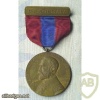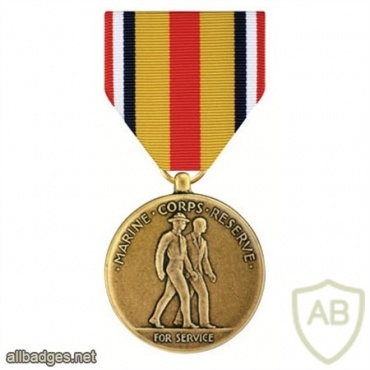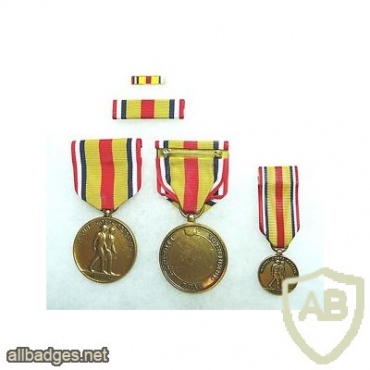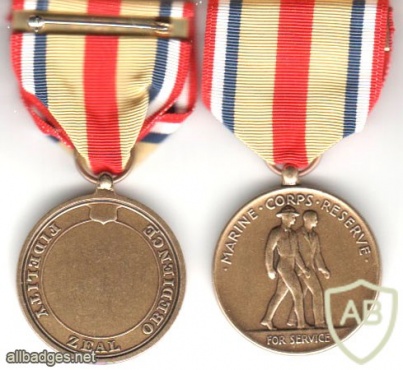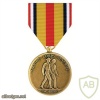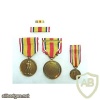Reserve Good Conduct Medal, Marine Corps
A Reserve Good Conduct Medal refers to any one of the five military conduct awards which are issued by the United States Armed Forces to enlisted members of the Reserve and National Guard. The primary difference between the regular Good Conduct Medal and the Reserve Good Conduct Medal is that the Good Conduct Medal is only issued for active duty service while the reserve equivalent is bestowed for reserve duties such as drills, annual training, and additional active duty for either training or operational support to the active duty force or, in the case of the Army National Guard and Air National Guard, in support of Title 32 U.S.C. state active duty (SAD) such as disaster response and relief. To receive a Reserve Good Conduct Medal, a service member (excluding Army Reservists), must, generally, be an active member of the Reserve or National Guard and must have performed three to four years of satisfactory duty (to include drills and annual training) with such service being free of disciplinary action.
Selected Marine Corps Reserve Medal - First created in 1925 as the Fleet Marine Reserve Medal, this is the oldest of the Reserve Good Conduct Medals. In 1939 the name of the medal was changed to the Organized Marine Corps Reserve Medal. In 1984, the award adopted its current name. As of January 1, 1996, the qualifying period of service was changed from four to three years to mirror the requirements of the Good Conduct Medal. Additional awards are denoted by bronze service stars.


